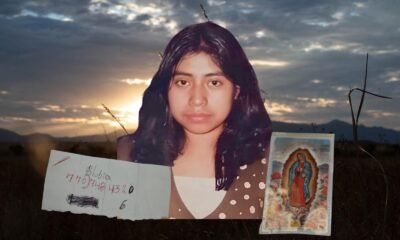Analise Ortiz
Arizona Legislature Approves Controversial Bill to Define Biological Sexes

By Staff Reporter |
The Arizona legislature has passed a contentious bill that recognizes only two genders and sets definitions for related terms, following strict party lines. On Tuesday, the Senate approved HB 2062, which was introduced by State Rep. Lisa Fink.
This legislation defines key terms in a traditional sense. A “boy” is described as a human male who hasn’t reached adulthood, while a “girl” is conversely defined as a human female in the same age category. The bill further delineates roles such as “father” and “mother,” while establishing “male” and “female” based on biological characteristics at birth, specifically stating that “sex” refers to a person’s biological designation.
Governor Katie Hobbs is unlikely to endorse the bill, having vetoed similar legislation last year. In her prior statement, she emphasized a commitment to not support measures that would harm Arizona residents, reiterating her belief in individuals’ rights to identify as their preferred gender.
On International Women’s Day, Hobbs reinforced her stance against discriminatory bills, stating, “trans women are women, and any bill that harasses or threatens their safety will swiftly meet my veto stamp.”
The Independent Women’s Network (IWN) launched a campaign pressuring Hobbs to reconsider her position, with notable activist Riley Barker advocating for the bill. IWN argues that HB 2062 is essential for defining gender, claiming it helps protect women in various contexts.
Conversely, Senate Democrats voiced strong opposition to the bill, highlighting the potential risks it poses to transgender individuals. State Sen. Analise Ortiz pointed out that such legislation exacerbates the vulnerabilities faced by trans people, urging respect for personal identities.
While the progress of HB 2062 reflects a divide in the legislature, the debate emphasizes broader social issues regarding identity and rights within Arizona. The bill has already passed the House, where it met similar partisan support.
Critics like State Rep. Stephanie Simacek and Rep. Lorena Austin, who identifies as nonbinary, challenged the bill’s definitions as outdated and narrow. They argued that personal experiences and societal understanding of gender should inform legislative discourse.
The continuing conflict highlights a significant ongoing conversation about gender identity and the legal implications surrounding it in Arizona.


















